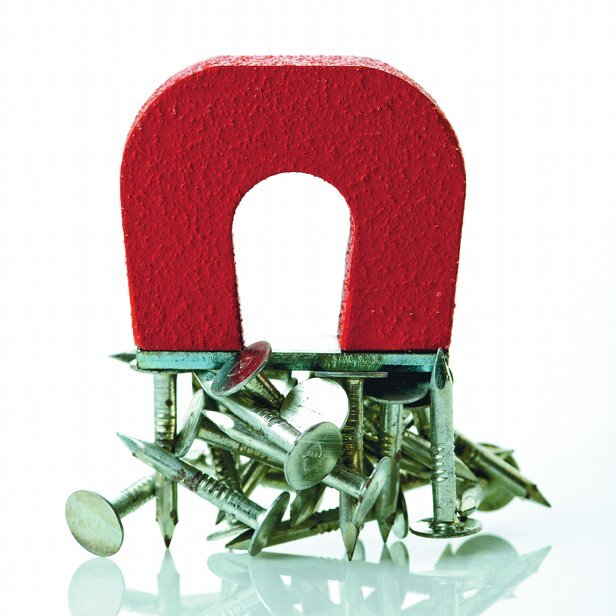Photo credit: unknown
QUESTION
Wherever I turn, I experience challenge. Why does this happen?
ANSWER
Depending on how we show up in life, or the role that we play in whatever groups we find ourselves in, we attract certain personalities. Learning we have some influence over this can help us mitigate that attraction.
The best indicator of your level of consciousness is how you deal with life's challenges when they come. Through those challenges, an already unconscious person tends to become more deeply unconscious, and a conscious person more intensely conscious. You can use a challenge to awaken you, or you can allow it to pull you into even deeper sleep. The dream of ordinary unconsciousness then turns into a nightmare.”
― Eckhart Tolle, German-Canadian author
Why do some people encounter more challenge with change than others? Two common reasons are perception and situational role.
Some people have a mental model that challenge and change are threatening. Other people viewing the very same set of circumstances might experience opportunity. There is ample research and marketing for both perspectives. Ultimately our mental models come from our lived experience. Regardless of our bias of change and challenge, everyone in an organization needs to understand change brings an energy force that requires management and direction. Ideas from the outside can be necessary bacteria to help germinate new solutions. They can also be toxic viruses that could kill what’s working. Either way, adaptation is what keeps organizations vital and relevant. Resistance stands alongside the gatekeeper of all this change, seeking to preserve status quo. Preservatives prolong the shelf-life of ideas, processes, standards, mechanisms, and scaffolding for what works (and sometimes what doesn’t).
Whether we are bringing ideas in, casting them out, adapting them to fit, or preserving them, our roles leading change put us at the forefront of challenge and change. Perhaps we prefer the company of people who buck change because we see it as a form of resisting unnecessary authority. Or, maybe we have experienced challenging personalities in our family and because that is what is familiar to us, we gravitate toward those qualities in others—consciously or unconsciously. We might perceive people who challenge others and bring change to be honest and upfront about their agenda.
Regardless of how we reason with challenge and change, there is some level of individual agency we have to learn in order to drive results with others. When confronted with difficulty, our challenge is to trust, listen, and learn—about ourselves and others.
The next time we encounter some bumpy road, we can’t give in to anxiety, worry or complain. Instead, our task is to stay calm and ground ourselves. Before we react, we need to give ourselves enough emotional distance to generate alternative responses. When we see other choices, we generally try them. The emotional storm will pass, probably sooner than you think. Emotions are a lot like the weather; they are temporary.
MORE THOUGHTS…
Change yourself - you are in control. — Mahatma Gandhi, Indian lawyer, anti-colonial nationalist, and political ethicist
Imagine that you are in control of your life. Now, the question is: Why do you have to imagine this? — Ernie J Zelinski, American author
Only you can control your future. — Theodor Seuss Geisel was an American children's author, political cartoonist, illustrator
All of a sudden you realize that you are the person who has control of your life. — Jim Henson, American puppeteer, animator, cartoonist, actor, inventor, filmmaker, and screenwriter
REMEMBER
You have more control over yourself and your circumstances than you think. If you're dealing with the difficulties of challenge and change, remember that you have tools and strategies of your practice (faith, reflection, meditation, simple breathing, naming your feeling, choosing alternative responses) you can rely upon.
PRACTICE
The next time you cross paths with challenge and change remind yourself that it is a learning moment. What is it you notice most about your own reactivity during these encounters? How can you be more curious about the bodily sensations (tightness, sweating, breathing), feelings (frustration, etc.), or thoughts you are having? There is something valuable in that moment designed to move you forward.
CONNECT
Talk to a friend or trusted colleague about the lessons you both can learn when confronted with a challenge. What more do you notice now then you did at the time?
FOR REFLECTION
If you keep a journal for your own development, write down thoughts about how others influence your everyday life, positive or negative. What specific, observable behavior do they have? Watch for how many judgmental terms come to mind, and how hard it is to get to the kind of behaviors you can observe only with your eyes. What attracts you or repels you about how others operate?
NEXT
To perform well while under pressure, we need to train our minds to work more effectively. Making the right decisions, whether that is hashing out how artificial intelligence will evolve or ensuring naval ships are ready on time takes practice.
Driving Results With Others: A pocket guide for learning on the job enables you with all the tools and tactics you need to make your interactions less stressful and more effective.
